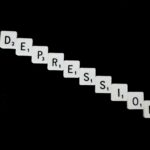Sometimes, the hardest part about healing isn’t the pain itself-it’s waiting. Waiting for an apology that may never come, hoping for the closure that feels just out of reach. Holding onto that hope can keep us stuck in a cycle of hurt and resentment, blocking the path to peace. But what if you didn’t have to wait? What if you could find closure within yourself, reclaim your power, and begin healing on your own terms? In this guide, we’re going to explore how to release the need for an apology and embrace your journey toward true emotional freedom. Because sometimes, the most profound healing starts when we stop waiting and start moving forward.
Understanding the Emotional Impact of Unmet Apologies
When someone we care about fails to apologize, it often leaves a deep emotional void-an unspoken tension that clings to us like a heavy shadow. This void can manifest as confusion, hurt, or even anger, making it difficult to fully process what happened. The absence of acknowledgment feels like a lingering question mark, causing us to replay moments in our minds, searching endlessly for clarity or validation. Over time, this emotional limbo can erode our sense of self-worth and trust, leaving us trapped in a cycle of unresolved feelings and “what-ifs.”
It’s important to recognize that the pain stemming from unmet apologies is not just about the act itself but the broken promise of understanding and respect. This disconnect can lead to a sense of isolation, as if our emotions are invisible or unimportant to the other person. Instead of letting these feelings fester, embracing a few empowering truths can help reclaim control:
- Your feelings are valid. It’s okay to hurt even if you never receive an apology.
- Closure can be self-generated. You don’t need external validation to heal.
- Letting go is a gift to yourself. Holding on to resentment only prolongs your suffering.
Embracing Self-Compassion as the First Step Toward Healing
When we embark on the journey of healing, the first and most powerful act we can offer ourselves is kindness. Self-compassion is not about excusing wrongdoing or sweeping pain under the rug; it’s about acknowledging your hurt without judgment and granting yourself the grace you genuinely deserve. This transformative approach shifts the focus inward, creating a safe emotional space where you can gently confront your feelings rather than suppress them. By treating yourself with the same empathy you’d offer a dear friend, you lay the foundation for true restoration and inner peace.
Embracing this mindset means consciously letting go of harsh self-criticism and embracing a nurturing dialogue within. Some profound ways to cultivate self-compassion include:
- Recognizing your shared humanity-understanding that pain and imperfection are part of the human experience, not a mark of personal failure.
- Practicing mindful awareness-observing your emotions without becoming overwhelmed or reactive, allowing yourself to feel without judgment.
- Offering yourself words of comfort-repeating affirmations like “It’s okay to feel this way” or “I am worthy of healing.”
This compassionate inner dialogue softens emotional wounds, paving the way to release resentment and step forward empowered and whole.
Practical Strategies to Release Resentment and Find Inner Peace
Holding onto resentment is like carrying a heavy burden that only weighs you down, keeping your heart locked in past pain. To start the process of healing, it helps to acknowledge your emotions without judgment. Allow yourself to feel the hurt completely – anger, sadness, or disappointment – without trying to suppress or rationalize them away. Creating a personal ritual can be incredibly cathartic: writing a letter you never intend to send, expressing everything left unsaid, can serve as a powerful embrace of your truth and soften the grip resentment has on you. Incorporate deep breathing or meditation to ground your mind, helping you regain control over racing thoughts and channel focus into self-compassion.
Next, try to consciously shift your perspective by practicing gratitude and reframing the narrative that feeds your resentment. This does not mean excusing wrong behavior, but rather reclaiming your power by deciding what meaning to attach to events. Surround yourself with uplifting influences-books, music, or people-that inspire resilience and hope. Some practical strategies to consider include:
- Setting healthy boundaries to protect your emotional energy;
- Engaging in regular physical activity which helps release tension and improve mood;
- Seeking supportive communities where your feelings are validated;
- Forgiving yourself for any lingering guilt or blame you may carry.
Through these intentional steps, you create space within your heart not only for peace but also for joy and growth, free from the chains of resentment.
Creating Your Own Closure Rituals to Move Forward with Strength
Crafting a personalized ritual can serve as a powerful catalyst for healing, offering a tangible way to honor your journey and release lingering pain. Consider setting aside a quiet moment where you can express your feelings-whether through journaling, creating art, or speaking aloud. These acts become symbolic bridges that acknowledge your experience without demanding validation from others. Integrating sensory elements like lighting a candle, playing a meaningful song, or using calming scents can deepen the emotional resonance, anchoring your commitment to move forward with intention and grace.
Here are a few simple yet profound ideas to inspire your ritual creation:
- Letter Writing: Write a letter to yourself or the person involved-unfiltered and honest-and then choose to keep it, shred it, or burn it safely as a symbol of release.
- Visualize Healing: Close your eyes and picture yourself stepping out of the shadow of hurt into a light where you feel empowered and whole.
- Nature Ceremony: Collect natural items like stones, leaves, or flowers and arrange them in a way that represents your strength, returning them to the earth as a gesture of letting go.
- Affirmation Creation: Develop a personal mantra or affirmation that reinforces your worth and resilience, repeating it daily.
These rituals aren’t about erasing the past but about reclaiming your power in the present, creating a sacred space where you honor your growth. By embodying closure through these mindful practices, you nurture a foundation of strength that propels you toward a future defined by healing and hope.
To Conclude
Finding closure without waiting for an apology is one of the most empowering journeys you can embark on. It’s about reclaiming your peace, honoring your own healing process, and choosing freedom over resentment. Remember, your worth isn’t tied to someone else’s acknowledgement or regret-it lives within your ability to let go, forgive yourself, and move forward with grace. Healing is deeply personal, and sometimes the kindest thing you can do for your heart is to create closure from within. So, take a deep breath, trust in your resilience, and step boldly into the light of your own healing. You deserve nothing less.
















